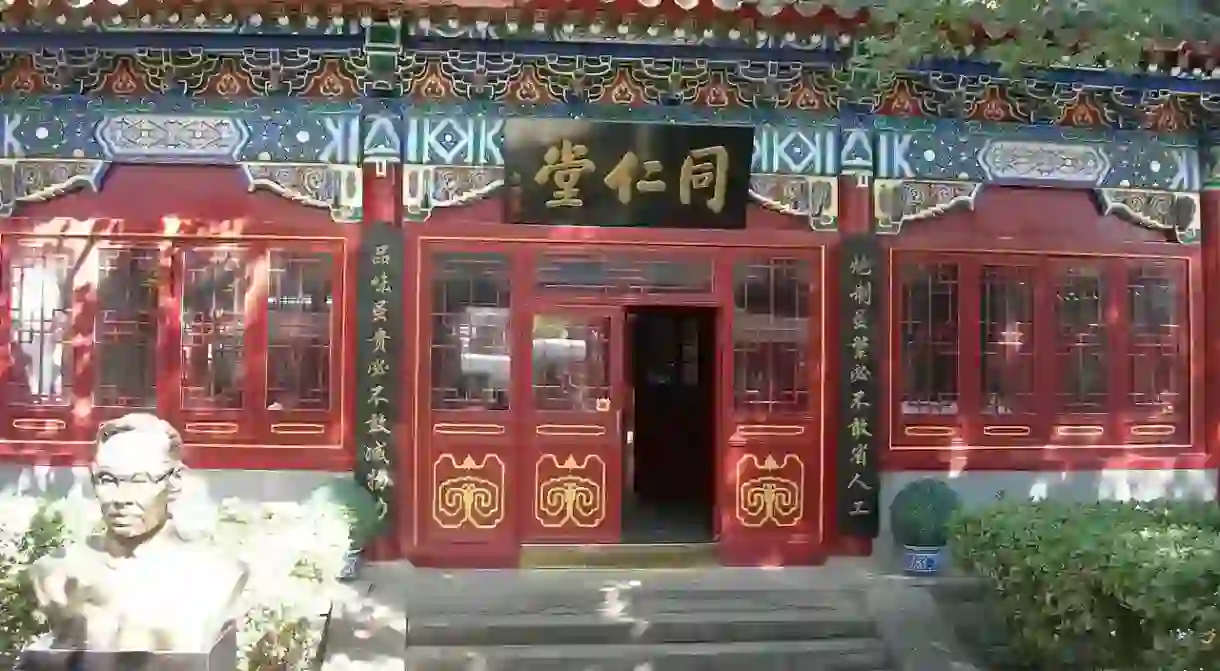How to Visit a Traditional Chinese Hospital in Beijing

Regardless of the disputes over the legitimacy of Traditional Chinese Medicine (TCM), there’s a great number of Chinese who prefer TCM to modern Western medicine because, as the saying goes: “Western Medicine cures the symptoms while Traditional Chinese Medicine cures the disease.”
Based on 2,500 years of experience in the practice of Chinese medicine and on theories such as yin-yang and the five phases, TCM believes that the human body is a unified entity of qi, shape and spirit. Through treatment like the decoction of Chinese medicinal herbs, acupuncture or food therapy, TCM aims to achieve the harmony of three elements that make up a human body, in other words, good health.

Where to see TCM doctors?
Whether feeling sick or just feeling a bit uncomfortable physically, a person can visit the Traditional Chinese Hospital for help. The only problem is, where to go?
Chinese Medicine Hospitals
Just like many modern Western hospitals, TCM hospitals are also assessed and ranked. The most reliable are “Level 3 Rank Jia” (“Jia” means the top level in Chinese) hospitals, such as the Dongzhimen Hospital of Beijing University of Chinese Medicine and Guang’anmen Hospital of China Academy of Chinese Medical Sciences. Both are attached to academies so that they are sure that the medical treatments are the most up-to-date.
Chinese Medicine Clinics
There are also some well-established Chinese medicine clinics with a long history, for example the Tongrentang Chinese Medicine (you might be familiar with this one, as it is not only open all over China, but also has branches in Chinatowns around the world). The brand was founded in 1669 in Beijing, and had been the official supplier of medicine for the royal family for 188 years in the 18th and 19th centuries.

Another Chinese medicine clinic, Heniantang, has an even longer history than Tongrentang. It was founded in 1405 on Caishikou Street, next to Niujie, Beijing’s district with the largest concentration of Hui people. The amazing fact about Heniantang is that after all these centuries, it still sticks to its history being located near the Caishikou Subway Station.
Some people go to clinics because they admire certain doctors there. Some believe that clinics provide easier access to good doctors, as the doctors at clinics are usually older and more experienced.
What’s next?
If you decide to visit the big ‘Level 3 Rank Jia’ hospitals, then you just follow the normal procedure: register, get in the waiting line, etc. If you go to a clinic, there are usually no departments, but rather a doctor, sitting in his or her small office, confident about solving your problem by adjusting your yin-yang status.
The doctors will assign different treatments for different diseases. The treatments can be a prescription of Chinese medical herbs, which will turn into bags of bitter medicine (nearly all TCM hospitals and clinics can decoct the herbs for you with a small surcharge, and you may also choose to decoct by yourself, as long as you have the medicine decoction clay pot), acupuncture, cupping, Gua Sha, and accompanied with food therapies. Remember that it usually takes days or even months of treatment for a person to completely recover, so if your commitment level is low, it might not be worth it for you to begin.

A few tips
Don’t panic
Don’t get nervous when the doctor touches your wrist, or asks you to stick out your tongue. It’s because in order to give diagnoses, a TCM doctor needs to “Look, Listen (and Smell), Ask and Feel (望闻问切 Wang Wen Wen Qie).” “Look” means to observe the patient’s face and tongue; “Listen (and Smell)” means to listen to the patient’s breath or coughs, and smell the breath; “Ask” is the doctor asking for the patient’s symptoms and medical history; “Feel” is for doctors to take the patient’s pulse by putting their fingers on the patient’s wrist, or feeling the patient’s stomach.

Don’t get addicted to Chinese medicine
There’s an old Chinese saying that goes, “Good medicine for health tastes bitter to the mouth” (良药苦口利于心). There’s also another saying that goes, “Every medicine has its side effect” (是药三分毒). As magical as TCM may sound, it’s unwise to drink the medicine like water.













